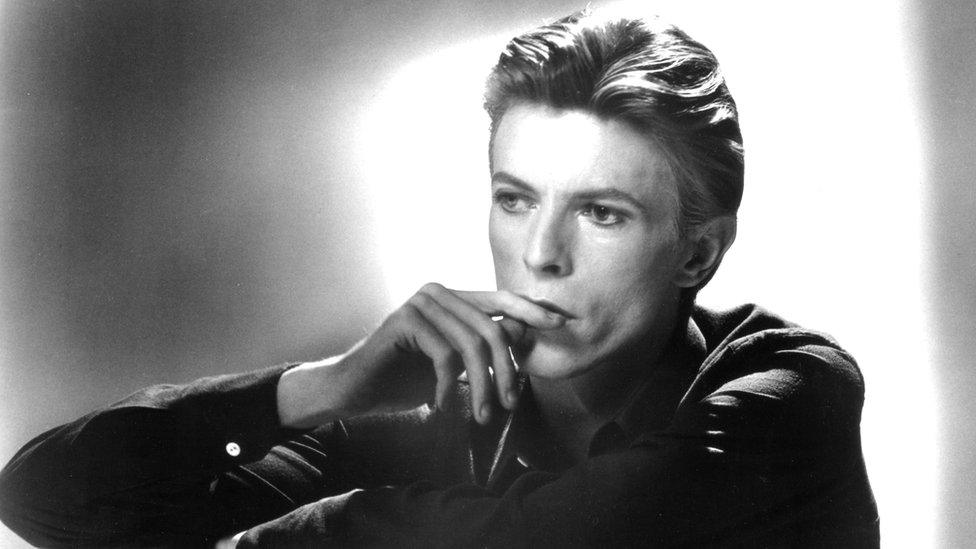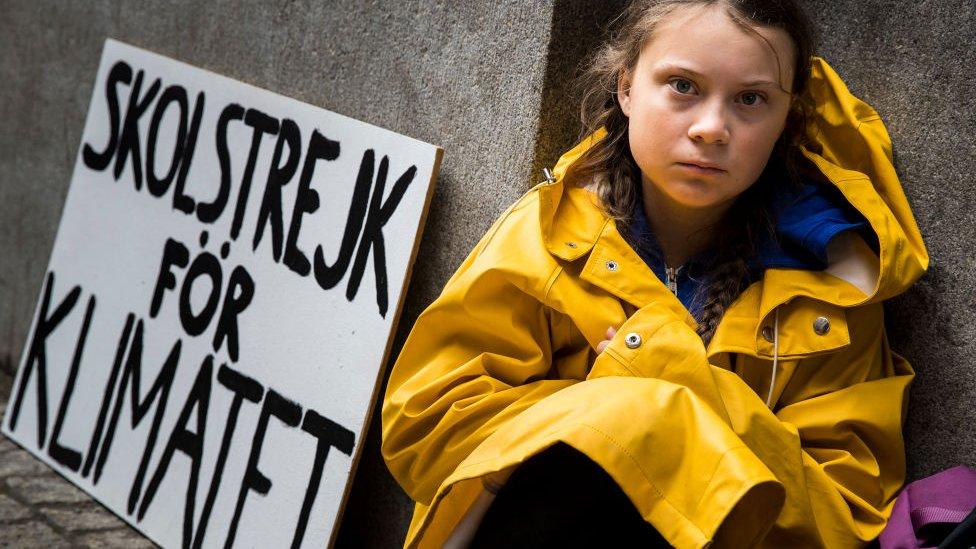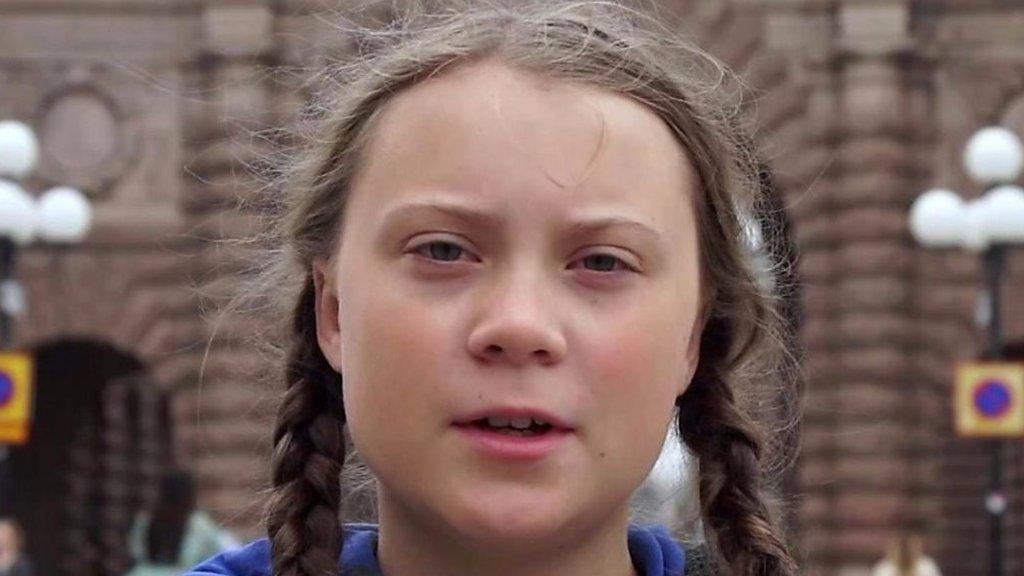Greta Thunberg rejects Nordic Council environmental award
- Published

Greta Thunberg started international strikes and protests over climate change
Greta Thunberg has turned down an environmental award and prize money because "the climate movement does not need any more awards".
She said the offer was a "great honour" and thanked the Nordic Council, which said it respected her decision.
But, she said, "politicians and the people in power" need to listen to the "current, best-available science".
Ms Thunberg was this year's favourite to win the Nobel Peace Prize, but the award went to Ethiopia's Abiy Ahmed.
In an Instagram post, external explaining her decision to turn down the prize money of 500,000 Swedish kronor (£40,000; €46,000), Ms Thunberg said: "The Nordic countries have a great reputation around the world when it comes to climate and environmental issues.
"There is no lack of bragging about this. There is no lack of beautiful words."
But she said Nordic energy consumption told "a whole other story".
She referenced a report from from WWF and the Global Footprint Network, external, which says Sweden, along with most of the Nordic region, lives as if the world has the resources of four planets.
The gap between what science said was needed to limit a global temperature increase and what was being implemented was "gigantic", said Ms Thunberg.
"We belong to the countries that have the possibility to do the most. And yet our countries still basically do nothing," she added.
The president of the Nordic Council, Hans Wallmark, said the organisation respected Greta Thunberg's decision and called her movement "a good cause for everyone".
He said the council - which encourages co-operation between parliaments in countries including Denmark, Finland and Ms Thunberg's home country Sweden - would think carefully about what to do with the prize money.
"You are failing us," Greta tells world leaders
Who else has turned down an award?
Jean-Paul Sartre refused the Nobel Prize for Literature in 1964. He said he "always declined official honours" as he did not want to be "turned into an institution"
Musician David Bowie turned down a CBE in the UK in 2000. He told The Sun: "I would never have any intention of accepting anything like that. I seriously don't know what it's for"
Vietnamese politician Le Duc Tho was jointly offered the Nobel Peace Prize in 1973 with US Secretary of State Henry Kissinger for negotiating an armistice in Vietnam. Tho refused the award as the war between Vietnam and the USA was ongoing, and he accused Kissinger of violating a truce

"It's not what I spent my life working for," David Bowie said of a knighthood
Author Virginia Woolf declined the Companion of Honour in 1935 and honorary degrees from Manchester and Liverpool as she considered awards a symptom of the patriarchy
British poet Benjamin Zephaniah refused an OBE honour (standing for Officer of the Order of the British Empire) in 2003 as the word "empire" reminded him of "slavery" and "thousands of years of brutality", he told The Guardian, external. There have been calls to change the name of the title
- Published30 October 2019

- Published14 February 2019

- Published22 September 2019
